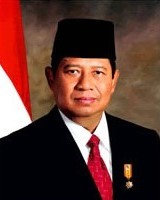In a speech heralding the formation of his 37-member cabinet last month, Indonesian President Susilo Bambang Yudhoyono lauded his new team as "credible and accountable," and expressed confidence in its abilities. "You are the chosen ones . . . and I consider you to be capable of doing your duties as members of the Second United Indonesia Cabinet," Yudhoyono said.
However, many experts did not join in Yudhoyono's glowing encomium, and with good reason. After Yudhoyono's landslide re-election victory in July, many observers had expected him to seize on his overwhelming (60.9 percent) electoral mandate to surround himself with a staunchly reform-minded cabinet for his second five-year term. Instead, 20 out of the 37 cabinet-level appointments announced on Oct. 21 seem to be based on considerations of political loyalty more than experience or competence. As a result, Yudhoyono has dashed hopes that he will embark on a bold transformation of Indonesia's economy and foreign policy.
Though Indonesia has so far proven quite adept at weathering the global financial crisis, it is still plagued by rampant poverty, high unemployment and endemic corruption. In order for the country to realize Yudhoyono's brisk annual growth target of 7 percent, experts believe it must overcome these obstacles by boosting foreign direct investment, strengthening infrastructure development, cracking down on corruption and streamlining its red-tape-ridden bureaucracy.

